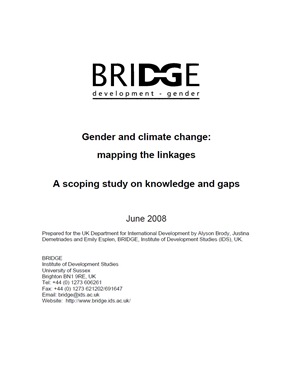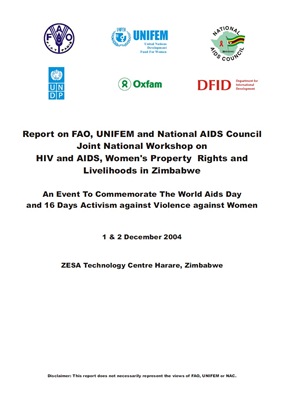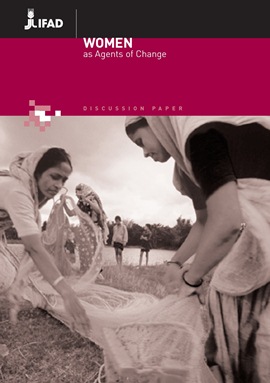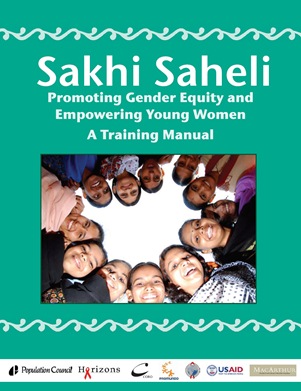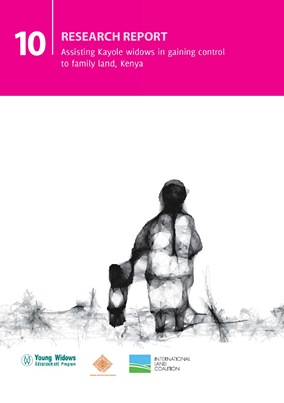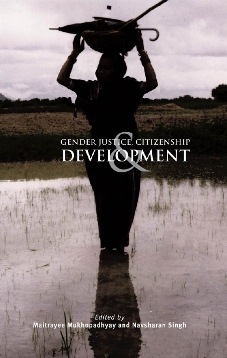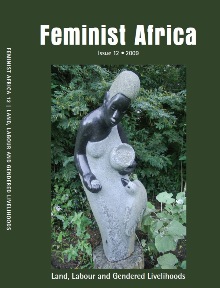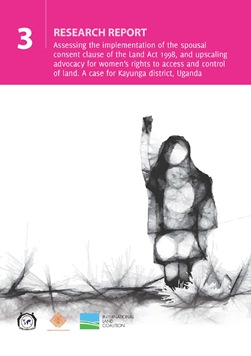Report on FAO, UNIFEM and National AIDS Council Joint National Workshop on HIV and AIDS, Women's Property Rights and Livelihoods in Zimbabwe
This is the report of a workshop held in Zimbabwe on HIV/AIDS and property rights women, with the aim of empowering widows at the grassroots level, as well as orphans affected by insecure property rights. The report makes recommendations on how to increase tenure security for women and children affected by HIV/AIDS.
You can download this report from the FAO website.
Women as Agents of Change
This document calls attention to the importance of women's empowerment in all aspects of public and private life. There is a specific section in the paper on women's access to land and other resources that emphasises the need to understand the power dynamic and the effects of policies on the allocation of and the the control over resources. In conclusion, the paper stresses the need to involve all members of society, including men, and political leaders, in the struggle for women's empowerment and equality.
Sakhi Saheli: Promoting Gender Equity and Empowering Young Women
This guide specifically seeks to promote women's reproductive rights in India but presents methods and specific participatory tools that can be adapted to other issues and contexts, like women's land rights.
[From the FAO website] This training initiative provides a space to young women and girls to question and challange existing inequitable gender norms; promote positive constructs of gender and identity; improve their understanding about their body; their feelings and sexuality; and promote sexual and reproductive health.
Assisting Kayole widows in gaining control to family land, Kenya
Access to and control over land is crucial for family well-being and food security in Kenya. Most land in Kenya is acquired through inheritance of family ancestral land, which is mostly passed down the male line.
The Pastoral Women’s Council: Empowerment for Tanzania’s Maasai
The Pastoral Women’s Council (PWC) is a community-based organisation established in 1997 in Tanzania. It was founded to promote the development of Maasai pastoralist women and children by facilitating their access to education, health, social services and economic empowerment. It seeks to address women’s marginalisation in patriarchal Maasai culture, as well as the poverty among the Maasai that has long been underpinned by land access restrictions for pastoralists, hunters and gatherers.
Gender Justice, Citizenship and Development
This book explores the meanings of gender justice and the practice of citizenship as shaped by context-specific histories, cultures and struggles. It presents a conceptual framework and provides four regional perspectives and a guideline for development programs. The section on Sub-Saharan Africa in particular focuses on the the definition of citizenship in the female experience as more than simply a formal relationship between the individual and the State, but also involving her position in a family, a community and an ethnic group.
Module 3: If We Organize it We Can do it: Project Planning from a Gender Perspective
Taking the step from appraisal to action using planning techniques that respond to the needs expressed by women and men.
This is a module for project planning from a gender perspective. It outlines experiences learned by various projects in Central America and provides practical guidleines for how to manage gender equity in the plannig process of a project.
You can download this module from the International Union for Conservation of Nature's website (IUCN).
Community Mapping: A How-To Handbook for Grassroots Women's Organisations
This handbook is based on the experiences of the Huairou Commission the Women's Land Link Africa in using community mapping with groups of women. Community mapping allows grassroots women to assess and record the community's needs and assets and to imagine new solutions to the issues they are facing. The handbook provides through and practical guidelines for various community mapping methods.
You can find this publication on the website of the Huairou Commission.
Land, Labour and Gendered Livelihoods - Feminist Africa - Issue 12, 2009
[From the editorial] This issue of Feminist Africa seeks to explore the interconnections among economic liberalisation policies, land and resource tenures, and labour relations in the structuring of gendered livelihoods in sub-Saharan Africa. The focus on livelihoods departs somewhat from Feminist Africa’s niche in providing cutting-edge feminist analysis of issues of sexual politics and identities, national politics and democratisation processes, higher education and feminist research methodologies.
Experiences of women in asserting their land rights: the case of the Bugesera District, Rwanda
Poor women in developing countries rely on land as source of livelihood. Increasing pressure on land — brought on by globalisation pressures, increased population and privatisation — undermines women’s land tenure security. The comparison of women’s land access is predominantly measured against that of men, and this has been the basis for formulating policy aimed at increasing women’s land tenure security.
Assessing the implementation of the spousal consent of the Uganda Land Act 1998
Land is a crucial source of livelihood for Ugandans, especially for those who live in Kayunga district, as it is one of the main agricultural districts of the country. The 1995 Constitution of the Republic of Uganda provides for the emancipation of women. Section 38A in particular stipulates that the consent of one’s spouse must be obtained before the other spouse can make any transaction with family land, including selling, pledging, mortgaging, exchanging or transferring it.

